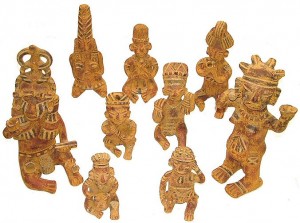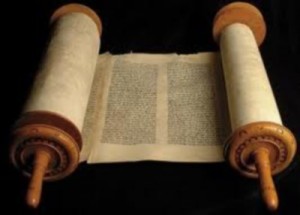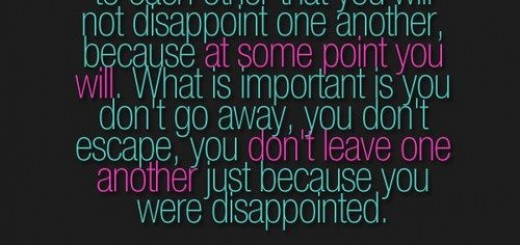The importance of context or ‘Too little, too late’
The order of the books of the Bible makes no sense to me. Take the prophets, for example. Why would they not be placed in some even approximate chronological order? Or even better, interspersed in the correct historical context throughout the books of the Kings and the Chronicles? How can we in our current situation have any chance of understanding the message if we are completely ignorant of the context in which each message is written? no wonder these books are often such a mystery to us and so often overlooked!
 Take Zephaniah for example. According to the Bible Guide I use by Andrew Knowles, Zephaniah was a young prophet prophesying during the reign of a young king. There hadn’t been any other prophets speaking out in his lifetime. He had no living example to follow and be inspired by. The previous prophets such as Isaiah and Micah had spoken over seventy years before. And in those seventy years, things had gone from bad to worse. The people of Judah had embraced paganism more than ever. They were worshipping other gods. And into this context steps the young king Josiah (very young king – he was only eight years old when he became king!), determined to bring about change.
Take Zephaniah for example. According to the Bible Guide I use by Andrew Knowles, Zephaniah was a young prophet prophesying during the reign of a young king. There hadn’t been any other prophets speaking out in his lifetime. He had no living example to follow and be inspired by. The previous prophets such as Isaiah and Micah had spoken over seventy years before. And in those seventy years, things had gone from bad to worse. The people of Judah had embraced paganism more than ever. They were worshipping other gods. And into this context steps the young king Josiah (very young king – he was only eight years old when he became king!), determined to bring about change.
He did what was right in the eyes of the Lord and followed completely the ways of his father David, not turning aside to the right or to the left. 2 Kings 22:2
In 2 Kings 22 and 23, we read how Josiah commissions the repair of God’s temple and takes heed of the words of the Book of the Law.
‘Go and enquire of the Lord for me and for the people and for all Judah about what is written in this book that has been found. Great is the Lord’s anger that burns against us because those who have gone before us have not obeyed the words of this book; they have not acted in accordance with all that is written there concerning us.’ 2 Kings 22:13
 In the presence of the people, he renews the covenant ‘to follow the Lord and keep his commands, statutes and decrees with all his heart and all his soul’. He was on a mission to purge the land of its unfaithfulness, to restore the altars and holy places to their proper use.
In the presence of the people, he renews the covenant ‘to follow the Lord and keep his commands, statutes and decrees with all his heart and all his soul’. He was on a mission to purge the land of its unfaithfulness, to restore the altars and holy places to their proper use.
And yet…
Maybe this was all going to be too little, too late…
Nevertheless, the Lord did not turn away from the heat of his fierce anger, which burned against Judah because of all that Manasseh had done to arouse his anger. 2 Kings 23:26
This is the context for the prophet Zephaniah. He’s the first in a new generation of prophets – Jeremiah, Ezekiel, Habakkuk and Obadiah (see what I mean about the order of the books? Why are they not in the order they were actually written?)
The word of the Lord that came to Zephaniah son of Cushi, the son of Gedaliah, the son of Amariah, the son of Hezekiah, during the reign of Josiah son of Amon king of Judah. Zephaniah 1:1
His father Cushi may have been a Cushite – an Ethiopian. And yet Zephaniah has a Jewish heritage and the writer feels the need to make that clear. The Hezekiah mentioned may even have been King Hezekiah!
And so remember the context. This young, good king is trying to bring about change for the better. And onto this stage steps Zephaniah with this message –
‘I will sweep away everything
from the face of the earth,’
declares the Lord.
‘I will sweep away both man and beast;
I will sweep away the birds in the sky
and the fish in the sea –
and the idols that cause the wicked to stumble.’ Zephaniah 1:2-3
It gets worse. God will turn his attention on Judah and Jerusalem and destroy anyone who has had anything to do with pagan practices (that’s pretty much everyone then, basically). All those who have turned away from following the one true God. All those who have not asked God how best to live their lives. He describes this time as ‘the day of the Lord’. The great day of the Lord.
Be silent before the Sovereign Lord,
for the day of the Lord is near. Zephaniah 1:7
It’s time to punish the complacent, all those who think that God won’t take any notice of what they’re up to and won’t do anything about it.
At that time I will search Jerusalem with lamps
and punish those who are complacent,
who are like wine left on its dregs,
who think, “The Lord will do nothing,
either good or bad.” Zephaniah 1:12
But He will do something, Zephaniah makes that clear.
Complacency.
I have a lot more to say about that.
I’ll save that for tomorrow.












